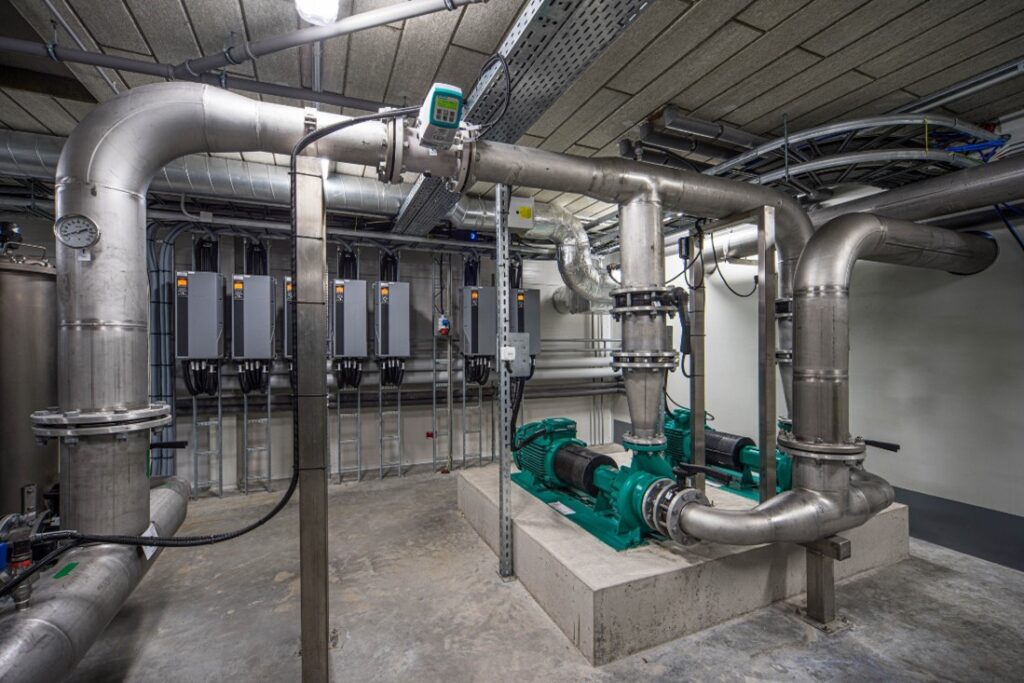Nighttime Protocols for the Night Clerk.

In the hospitality industry, hotels face various challenges, and one of the most daunting is dealing with unexpected property damage, especially during nighttime hours when resources are limited. Whether it’s a pipe break, a major water overflow, or any other unforeseen incident, the response of the night clerk plays a crucial role in mitigating the damage and ensuring the safety and comfort of guests.
In these situations, the night clerk must act swiftly and effectively, despite the absence of maintenance personnel. Here are several considerations for training, protocols, and actions the night clerk should take when faced with property damage emergencies during the night.
It is essential that the night clerk remains calm and composed. Maintaining a level head is needed for making rational decisions and coordinating the response effectively. Once the damage is discovered, the night clerk should immediately assess the extent of the situation. This involves identifying the source of the damage and evaluating its impact on guests, staff, and the overall operation of the hotel. If the hotel has a PREP™ plan in place, they’ll know exactly what to do.
Since maintenance personnel are typically not available during nighttime hours, the night clerk must promptly contact the appropriate professionals to address the issue. This may involve calling emergency restoration services or contracting specialized companies that offer 24/7 assistance for property damage cleanup. These professionals are equipped with the expertise and resources to manage various types of emergencies, from water damage to fire incidents, efficiently and effectively.
In addition to contacting external experts, the night clerk should notify the hotel management or the designated point of contact for emergencies. Keeping the management informed ensures transparency and enables them to provide necessary support and resources as needed. Moreover, the night clerk should document the incident thoroughly, including the time of discovery, actions taken, and any relevant details for insurance purposes and future reference.
Since maintenance personnel are typically not available during nighttime hours, the night clerk must promptly contact the appropriate professionals to address the issue. This may involve calling emergency restoration services or contracting specialized companies that offer 24/7 assistance for property damage cleanup. These professionals are equipped with the expertise and resources to manage various types of emergencies, from water damage to fire incidents, efficiently and effectively.
In addition to contacting external experts, the night clerk should notify the hotel management or the designated point of contact for emergencies. Keeping the management informed ensures transparency and enables them to provide necessary support and resources as needed. Moreover, the night clerk should document the incident thoroughly, including the time of discovery, actions taken, and any relevant details for insurance purposes and future reference.

While waiting for the arrival of restoration professionals, the night clerk should prioritize guest safety and comfort. This may involve relocating guests to unaffected areas of the hotel, providing assistance with personal belongings, and offering alternative lodging if necessary. Clear communication with guests is vital during this process, as it helps alleviate concerns and ensures cooperation during the cleanup efforts.
Simultaneously, the night clerk should take immediate measures to contain the damage and prevent it from escalating further. Depending on the nature of the incident, this may involve shutting off water or electricity supply to affected areas, (shut-offs should already be tagged), and securing the premises to prevent unauthorized access if necessary. By taking proactive steps to mitigate the damage, the night clerk minimizes the impact on the hotel’s operations and reputation.
Once the restoration professionals arrive on-site, the clerk (and management) should cooperate closely with them to facilitate the cleanup process. This includes providing access to affected areas, providing necessary information about the hotel’s layout and infrastructure, and coordinating with other staff members to ensure a smooth operation. Remember that clean-up and recovery may take days! Effective communication and teamwork are crucial for achieving timely and efficient results. If the hotel has a PREP™ plan in place, the emergency recovery team will know the layout and any critical details of the property.
Throughout the cleanup and restoration process, the entire management team should remain vigilant and attentive to any developments or challenges that may arise. This includes monitoring the progress of the cleanup, addressing any concerns or issues raised by guests or staff, and ensuring compliance with safety regulations and protocols. By staying actively involved in the process, the team demonstrates accountability and commitment to resolving the situation effectively.

After the cleanup is completed, management should conduct a thorough inspection of the affected areas to ensure that all damage has been adequately addressed. This may involve testing equipment and systems, checking for structural integrity, and verifying that cleanliness standards are met. Additionally, they should communicate with guests to inform them of the resolution and reassure them of the hotel’s commitment to their safety and satisfaction.
Dealing with property damage emergencies during nighttime hours presents significant challenges for hotel night clerks. However, by following established protocols and taking decisive action, the night clerk can effectively manage the situation and minimize the impact on guests and the hotel’s operations. Be absolutely sure that you have a reliable, and professional PREP™ contractor and program in place to minimize the challenges.
From contacting your restoration contractor to coordinating cleanup efforts and ensuring guest safety, the night clerk and all management plays a vital role in navigating through such crises with efficiency and professionalism.
Author: Dick Wagner, Tactical Specialist

